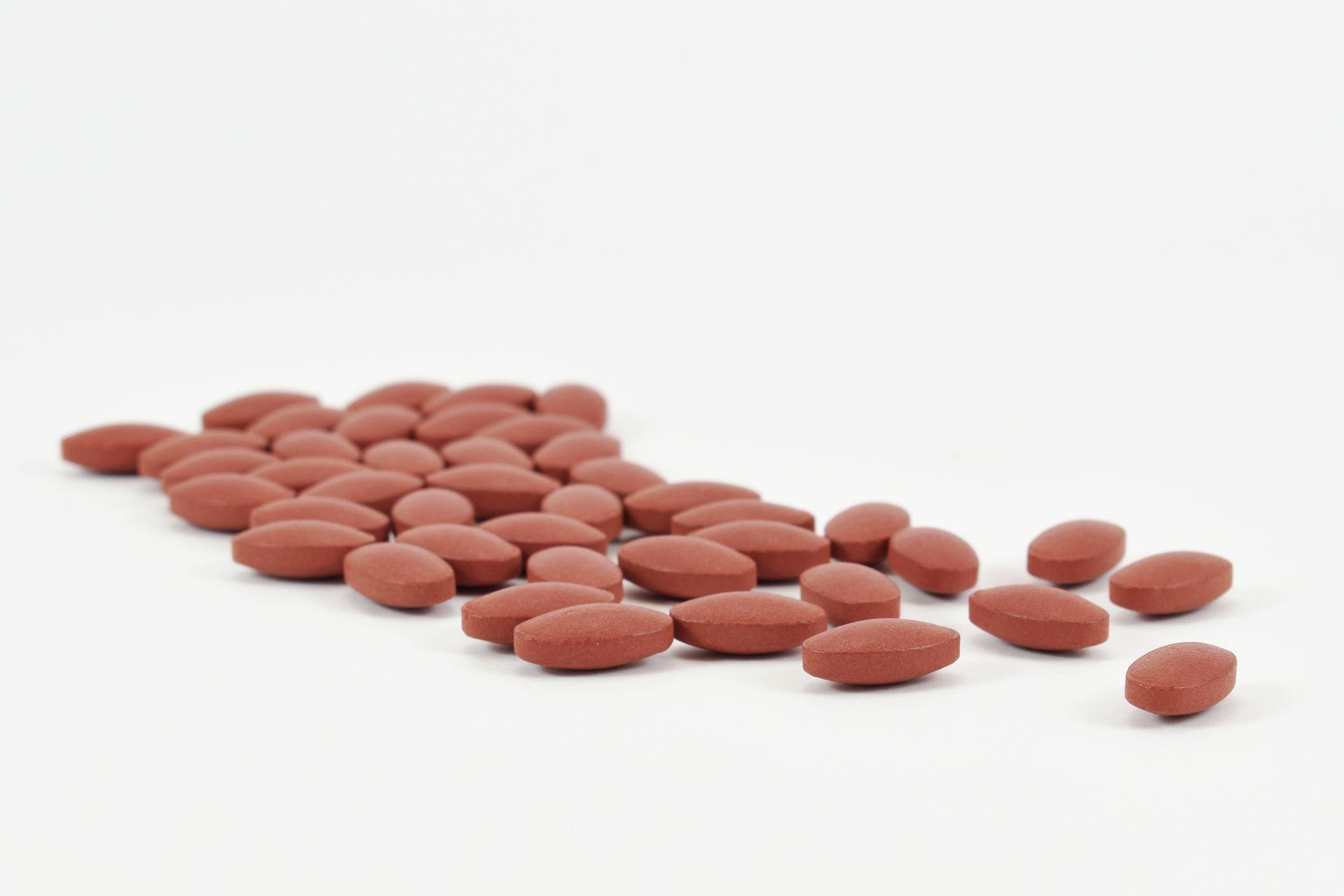Can Vitamin Supplementation Help Prevent Miscarriage?

Miscarriages are heartbreaking, and if you've suffered one, you're not alone. The Mayo Clinic estimates that somewhere between 10 and 20 percent of pregnancies miscarry, although that is probably an underestimate.¹ Many pregnancies end in miscarriage even before people know they are pregnant. And often, there is no known reason. After giving space for grief and healing, and when it’s time to try again, educate yourself about all possible ways to improve the chances of a successful pregnancy. One of the first steps to start with is nutrition. Good nutrition is the foundation for good health, robust fertility, and a body that has the resources it needs to build another healthy human being. Working with a fertility nutritionist on dietary adjustments and supplements to prevent miscarriage can help improve your overall health while increasing the chances of a successful pregnancy.
What are the Main Causes of Miscarriage?
While science understands some of the primary causes of miscarriage, there are many cases where there doesn’t seem to be any known reason. Some of the reasons we do know about include the following:²
- Chromosomal abnormalities
- Infections
- Hormonal imbalances
- Advanced age
- Autoimmune diseases like lupus
- Unmanaged diabetes
- Congenital heart disease
- Obesity
- Thyroid disease
- Malnutrition³
- Lifestyle factors such as smoking or alcohol consumption
It’s important to stress that science has established no links between miscarriage and moderate exercise, stress, or sexual activity. The vast majority of miscarriages are complex, uncontrollable events that weren’t caused by anything you did or didn’t do. Going forward, just focus on the things you can control. Getting the right minerals and vitamins to prevent miscarriage (and in the right amounts) is one vital thing you can control, and it can help mitigate several miscarriage risk factors.
Does a Prenatal Vitamin Have All the Supplements Needed During Pregnancy?
During pregnancy, your body needs an increased amount of vitamins and minerals to support your health and the health and development of the baby. In fact, nutrient deficiency is scientifically connected to many pregnancy complications⁴, which is why prenatal vitamins are recommended. The problem is that not all prenatal vitamins are created equal. The right amount and combination of nutrients matters, and it can be difficult to find everything you need in just one pill, especially if you have certain health conditions.
Important Supplements Needed During Pregnancy In Preventing Harmful Deficiency
Here at Pulling Down the Moon, we dive deeply into the science of fertility nutrition, and these are some of the most essential vitamins to prevent miscarriage that we can recommend generally. To get specific individual recommendations,
please schedule an appointment so we can work with you through individual circumstances and conditions that may require additional nutritional support:
1. Vitamin B3 & B6
Some recent groundbreaking research out of Australia showed that good levels of niacin (Vitamin B3)⁵ could promote healthy fetal development by supporting nicotinamide adenine dinucleotide (NAD) synthesis. NAD synthesis is critical to healthy DNA, DNA repair, cellular survival, and cellular energy production. Lower levels of B3 disrupt this important mechanism, leading to lower fetal survival rates. In the case of Vitamin B6, recent studies indicate that supplementation is important for reducing inflammation during pregnancy while helping with several aspects of healthy fetal development.⁶

2. Vitamin C
As a powerful antioxidant, studies show that women with low blood levels of Vitamin C had a higher risk of miscarriage.⁷ Vitamin C helps the body to detoxify and maintain healthy immunity during pregnancy, while also supporting placental function. At the same time, some evidence exists that taking too much Vitamin C could cause pregnancy complications.⁷ The key here is getting the right amount to increase the benefit and decrease any possible adverse reactions.
3. Vitamin D
A host of studies have shown that insufficient Vitamin D levels can increase the chances of miscarriage.⁸ Vitamin D is actually a hormone that plays a vital role in regulating reproductive hormones in both men and women. It also helps metabolic processes that regulate blood sugar, so it is especially helpful for women with PCOS and diabetes.
A new study published in July in the American Journal of Clinical Nutrition has revealed a connection between vitamin D deficiency and risk of miscarriage in the first trimester. The study tested the blood levels of vitamin D of 1,683 pregnant women prior to week 22 of gestation. Of the 1,683 participants, 58 had a miscarriage (3.5%), 25 in the first trimester and 33 in the second trimester. Those who had a miscarriage had lower blood concentrations of vitamin D at the time of sampling compared to those who did not. These findings suggest the protective role vitamin D may play against miscarriage and the importance of adequate intake.
So are you getting enough vitamin D? Knowing approximately 80-90% derives from sunlight-induced production in the skin, it’s safe to say most of us living in the northern hemisphere are likely deficient. Only a small amount of the body’s total vitamin D is derived from diet, so supplementation is often necessary to achieve adequate blood levels. At Pulling Down the Moon we recommend supplementing with 1000 IU of vitamin D daily. Depending on your levels you may need to supplement with more, so we always recommend having your doctor do a blood test first.
4. Vitamin E
The correct amounts of Vitamin E can help control blood glucose levels during pregnancy, ⁹ however, too much of it may be linked to preterm labor risks.¹⁰

5. Folate / Folic Acid
Vitamin B9 takes two different forms: folate, which you can get from eating the right foods, and folic acid, which is the synthetic form of B9 used to fortify processed foods and supplements.¹¹ Both forms are extremely important for healthy fetal development, and even for male fertility.
6. Iron
Iron plays a critical role in building the placenta and the baby. In fact, the iron demands of pregnancy almost always exceed a woman’s normal iron stores during the second and third trimesters, so the correct level of supplementation is essential.¹²
7. Calcium
While it’s clear that pregnant women need more calcium to protect their bones while also building new bones for a baby, studies have shown that healthy calcium amounts can also help prevent dangerous preeclampsia and other complications that can harm the mother and baby.¹³
8. Omega-3 Fatty Acids
Omega-3 fatty acids (DHA and EPA) are incredibly important for fetal brain and eye development, and studies show that pregnant women themselves have an increased need for these nutrients to support a healthy pregnancy too.¹⁴
9. Magnesium
Magnesium is not only important for nerve development and health during pregnancy, some evidence indicates that correct levels of magnesium in a woman’s bloodstream during pregnancy can help reduce the risks of preeclampsia and eclampsia.¹⁵
10. Iodine
Some studies have indicated that insufficient iodine intake may be linked to pregnancy loss, and it is clear that iodine deficiency in utero and early childhood can hamper brain development in ways that can cause irreversible cognitive impairment.¹⁶
Multivitamins During Pregnancy
Again, it can be hard to make sure you get the right balance of all of these nutrients, both for promoting fertility and then carrying out a successful pregnancy. In addition to these vitamins and minerals, research has shown that nutrients such as choline and L-arginine can assist with both fertility and healthy pregnancy.
Watch Intakes Especially With Certain Vitamins
With most vitamins and minerals, especially A, C, E, and iron, it’s important to get the right amount. Getting either not enough or too much of nutrients like these can increase the risks of complications during pregnancy. For example, too little Vitamin A can increase miscarriage risks and pregnancy complications, but too much can increase the risk of birth defects.¹⁷ Your doctor can do blood tests to see how your blood serum levels of these nutrients stack up. Then, through nutritional counseling and tweaking your vitamins to prevent miscarriage, we can work out the ideal levels of these vitamins and minerals and increase your chances of having a healthy baby.
Seeking Guidance from a Trusted Nutrition Expert During Pregnancy Is Essential
In order to support you in getting the nutrients you need for a healthy pregnancy, Pulling Down the Moon also has a nutritionist-guided, 12-week Fully Fertile Nutrition Program that can help people make critical dietary changes that support fertility and pregnancy. We talk about supplements generally, but also counsel our members individually, so they can know what specific supplements to prevent miscarriage might help them in their unique circumstances.
Additional Beneficial Services During Pregnancy
Besides nutrition, there are many other holistic fertility support services Pulling Down the Moon provides that can further enhance your chances for success. Some of these include:

- Fertility acupuncture (especially helpful for natural pain relief and even nausea)
- Prenatal massage
- Prenatal yoga
These are just a few of our
holistic fertility-support services for both men and women. We’ve created an entire team and community that understands the unique challenges of the fertility journey, and we are here for you. To learn more about any of our services and how to become part of our community,
please schedule an appointment with us today.
References
¹Symptoms and causes - Mayo Clinic. (n.d.). Www.mayoclinic.org. https://www.mayoclinic.org/diseases-conditions/pregnancy-loss-miscarriage/symptoms-causes/syc-20354298?p=1
²Cleveland Clinic. (2019, July 22). Miscarriage: Risks, Symptoms, Causes & Treatments. Cleveland Clinic. https://my.clevelandclinic.org/health/diseases/9688-miscarriage
³Silvestris, E., Lovero, D., & Palmirotta, R. (2019). Nutrition and Female Fertility: An Interdependent Correlation. Frontiers in Endocrinology, 10(346). https://doi.org/10.3389/fendo.2019.00346
⁴Adams, J. B., Kirby, J. K., Sorensen, J. C., Pollard, E. L., & Audhya, T. (2022). Evidence based recommendations for an optimal prenatal supplement for women in the US: vitamins and related nutrients. Maternal Health, Neonatology and Perinatology, 8(1). https://doi.org/10.1186/s40748-022-00139-9
⁵Shi, H., Enriquez, A., Rapadas, M., Martin, E. M. M. A., Wang, R., Moreau, J., Lim, C. K., Szot, J. O., Ip, E., Hughes, J. N., Sugimoto, K., Humphreys, D. T., McInerney-Leo, A. M., Leo, P. J., Maghzal, G. J., Halliday, J., Smith, J., Colley, A., Mark, P. R., & Collins, F. (2017). NAD Deficiency, Congenital Malformations, and Niacin Supplementation. New England Journal of Medicine, 377(6), 544–552. https://doi.org/10.1056/nejmoa1616361
⁶Salam, R. A., Zuberi, N. F., & Bhutta, Z. A. (2015). Pyridoxine (vitamin B6) supplementation during pregnancy or labour for maternal and neonatal outcomes. Cochrane Database of Systematic Reviews. https://doi.org/10.1002/14651858.cd000179.pub3
⁷Silvestris, E., Lovero, D., & Palmirotta, R. (2019). Nutrition and Female Fertility: An Interdependent Correlation. Frontiers in Endocrinology, 10(346). https://doi.org/10.3389/fendo.2019.00346
⁸Tamblyn, J. A., Pilarski, N. S. P., Markland, A. D., Marson, E. J., Devall, A., Hewison, M., Morris, R. K., & Coomarasamy, A. (2022). Vitamin D and miscarriage: a systematic review and meta-analysis. Fertility and Sterility. https://doi.org/10.1016/j.fertnstert.2022.04.017
⁹Ley, S. H., Hanley, A. J., Sermer, M., Zinman, B., & O’Connor, D. L. (2013). Lower dietary vitamin E intake during the second trimester is associated with insulin resistance and hyperglycemia later in pregnancy. European Journal of Clinical Nutrition, 67(11), 1154–1156. https://doi.org/10.1038/ejcn.2013.185
¹⁰Rumbold, A., Ota, E., Hori, H., Miyazaki, C., & Crowther, C. A. (2015). Vitamin E supplementation in pregnancy. Cochrane Database of Systematic Reviews. https://doi.org/10.1002/14651858.cd004069.pub3
¹¹Folate vs. Folic Acid: What’s the Difference? (2023, January 6). Cleveland Clinic. https://health.clevelandclinic.org/folate-vs-folic-acid/
¹²Guo, Y., Zhang, N., Zhang, D., Ren, Q., Ganz, T., Liu, S., & Nemeth, E. (2019). Iron homeostasis in pregnancy and spontaneous abortion. American Journal of Hematology, 94(2), 184–188. https://doi.org/10.1002/ajh.25341
¹³Kumar, A., & Kaur, S. (2017). Calcium: A Nutrient in Pregnancy. The Journal of Obstetrics and Gynecology of India, 67(5), 313–318. https://doi.org/10.1007/s13224-017-1007-2
¹⁴Greenberg, J. A., Bell, S. J., & Ausdal, W. V. (2008). Omega-3 Fatty Acid supplementation during pregnancy. Reviews in Obstetrics & Gynecology, 1(4), 162–169. https://www.ncbi.nlm.nih.gov/pmc/articles/PMC2621042/
¹⁵Rylander, R. (2015). Treatment with Magnesium in Pregnancy. AIMS Public Health, 2(4), 804–809. https://doi.org/10.3934/publichealth.2015.4.804
¹⁶Lisco, G., De Tullio, A., Triggiani, D., Zupo, R., Giagulli, V. A., De Pergola, G., Piazzolla, G., Guastamacchia, E., Sabbà, C., & Triggiani, V. (2023). Iodine Deficiency and Iodine Prophylaxis: An Overview and Update. Nutrients, 15(4), 1004. https://doi.org/10.3390/nu15041004
¹⁷Chen, H., Qian, N., Yan, L., & Jiang, H. (2018). Role of serum vitamin A and E in pregnancy. Experimental and Therapeutic Medicine, 16(6), 5185–5189. https://doi.org/10.3892/etm.2018.6830
Meet Sadie Wells
Sadie is a registered dietitian nutritionist and certified personal trainer with 20 years of experience specializing in women’s health, weight loss, gut health, and fertility including PCOS. No matter how you are trying to conceive or how long you have been trying, Sadie will work with you to develop a customized road map and improve egg quality, sperm quality and reproductive environment to greatly optimize your fertility and increase your chances of taking home a healthy baby. Sadie’s mission is to show you how targeted nutrition, supplements, and lifestyle changes can really make a difference in your fertility journey. Sadie can also support patients through prenatal care and postnatal recovery. Sadie holds a BS in Nutrition & Dietetics from Western Illinois University, is a NASM-certified Personal Trainer, has completed a Certificate of Training in Adult Weight Management, and worked as a dietitian in 3 clinical trials for weight loss devices.
Share on Social
Discuss With Us
Our Latest Resources





